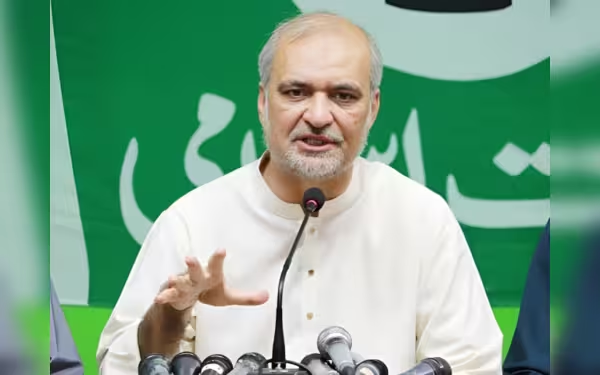Saturday, November 16, 2024 05:38 PM
JI Resumes Protests Against Rising Electricity Tariffs in Pakistan
- JI protests highlight citizens' burden of electricity costs.
- Rising tariffs impact households and small businesses.
- Call for fair energy policy to alleviate financial strain.
 Image Credits: tribune.com.pk
Image Credits: tribune.com.pkJamaat-e-Islami resumes protests against rising electricity tariffs, highlighting the financial burden on citizens and calling for a fair energy policy.
The issue of rising electricity tariffs in Pakistan has become a significant concern for many citizens, particularly as the cost of living continues to rise. The Jamaat-e-Islami (JI), a prominent political party in the country, has announced plans to resume protests against the increasing electricity rates. This decision comes in response to widespread dissatisfaction among the public regarding the financial burden imposed by these tariffs.
During a recent statement, a JI leader highlighted that the burden of taxes is disproportionately falling on common citizens, especially those in the salaried class. He pointed out that while the Independent Power Producers (IPPs) enjoy various tax exemptions, ordinary citizens are left to shoulder the financial strain. "Citizens are not only paying high electricity rates but also facing additional charges," he remarked, emphasizing the unfairness of the current situation.
The protests are expected to draw attention to the plight of the average Pakistani, who is struggling to make ends meet amid soaring electricity costs. Many families are finding it increasingly difficult to manage their monthly budgets, as a significant portion of their income is now being allocated to pay for electricity. This has led to a growing sense of frustration and helplessness among the populace.
As the JI prepares to take to the streets, it is essential to consider the broader implications of these protests. The rising electricity tariffs not only affect individual households but also have a ripple effect on businesses and the overall economy. Small businesses, in particular, are feeling the pinch, as higher operational costs can lead to increased prices for consumers, further exacerbating the economic challenges faced by many.
The decision by JI to resume protests against electricity tariffs reflects a growing discontent among the citizens of Pakistan. It serves as a reminder of the need for a fair and just energy policy that does not disproportionately burden the common man. As the situation unfolds, it will be crucial for the government to address these concerns and work towards a solution that ensures affordable electricity for all, fostering a more equitable society.













